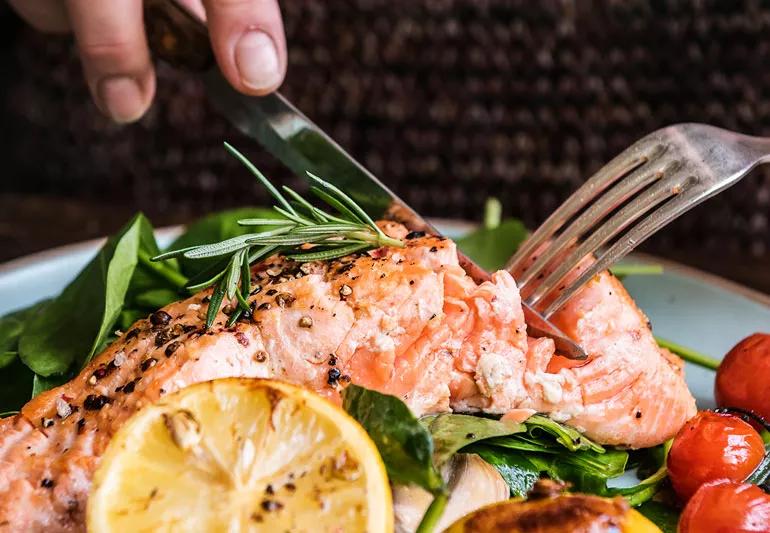How a few easy diet changes could mean a better night's sleep

Image content: This image is available to view online.
View image online (https://assets.clevelandclinic.org/transform/04665475-fc3f-4818-b1a9-efc61fdc5ff6/RLSdiet-1039340152-770x553_jpg)
Restless Leg Syndrome diet
Ah, the blissful bed. You snuggle in under the toasty blankets, in a dark room, with the soothing sounds of white noise lulling you into a dreamy sleep. And then … your legs fire off like you’re performing with the Rockettes.
Advertisement
Cleveland Clinic is a non-profit academic medical center. Advertising on our site helps support our mission. We do not endorse non-Cleveland Clinic products or services. Policy
Not even counting how many bruises you may have given your bedmate, restless legs syndrome — or the ohmygawd leg cramps — can really disrupt sleep patterns. Wellness expert Michael Roizen, MD, says that’s a problem not only because of associated fatigue, but also because sleep disturbances are associated with all sorts of long-term and serious health problems, including cognitive decline.
Here, Dr. Roizen explains what foods to load up on and what to avoid:
What to eat: Lots of websites say that the easiest solution is to drink some diet tonic water because it contains quinine, an ingredient shown to decrease cramping. But the Food and Drug Administration has warned that this research is out of date, and there isn’t nearly enough quinine in tonic to help, so we don’t recommend it.
Up your D3 and potassium. The truth is, you may be deficient in certain vitamins and minerals like D3 or potassium, which have been linked to cramps. If this is the case, eating spinach and fish is a must to get your dose of these important nutrients.
Low iron may also be a culprit. Restless legs syndrome may also be an indication of a more serious problem: low iron. Spinach, seafood, most bean and whole-grain bread offer this critical nutrient without some of the potential detrimental qualities of other iron-rich options like red meat (which is filled with carnitine). You can also try adding folate and magnesium to your diet, which have been shown in small studies to help some with restless legs syndrome. Find these in lentils, beans, dark leafy greens, almonds and edamame.
Advertisement
Finally, one of the big keys to solving restless legs is to avoid alcohol and caffeine before bed. These can disrupt your sleep and make symptoms worse.
This article was adapted from the best-selling book “What to Eat When” by Michael F. Roizen, MD, and Micheal Crupain, MD, MPH with Ted Spiker (©2018 National Geographic Books)
Advertisement

Sign up for our Health Essentials emails for expert guidance on nutrition, fitness, sleep, skin care and more.
Learn more about our editorial process.
Advertisement
Strategies for getting the sleep you need
The short answer from a sleep expert
The short answer from an interventional cardiologist
Bleeding is a risk and warrants taking care, but the reward of this lifesaving medication is great
Severe and debilitating headaches can affect the quality of your child’s life
Type 2 diabetes isn’t inevitable with these dietary changes
Applying a hot or cold compress can help with pain
Pump up your iron intake with foods like tuna, tofu and turkey